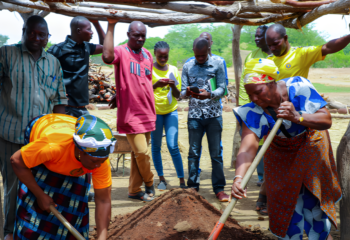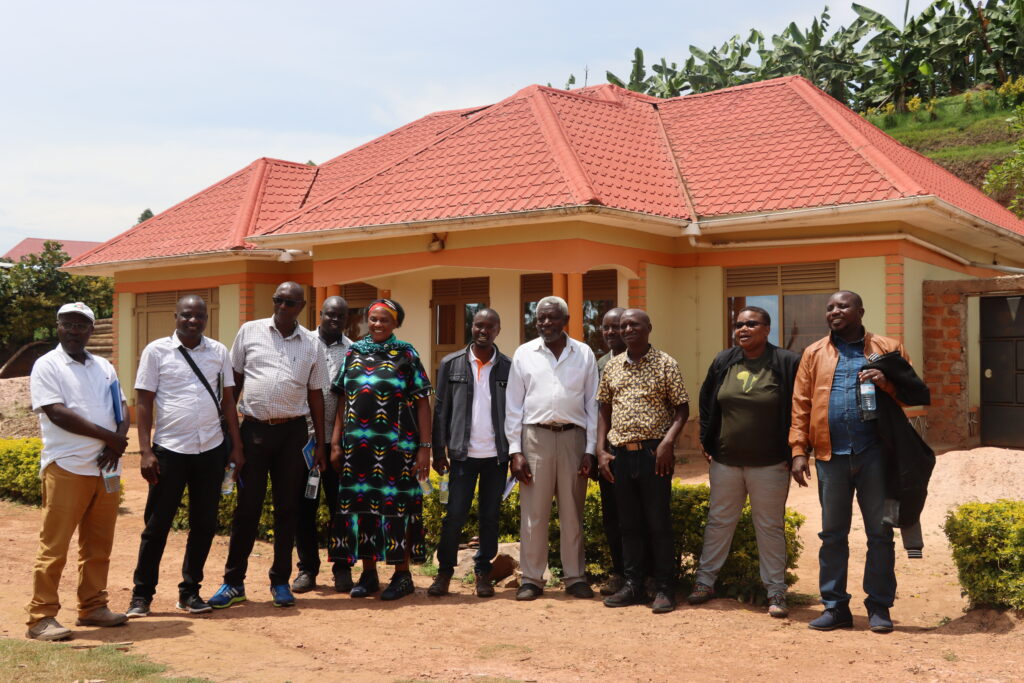
The Building Resilience and Inclusive Growth of Highland farming systems for rural Transformation (BRIGHT) project, implemented through the International Fertilizer Development Center (IFDC), Agriterra, the Uganda Ministry of Agriculture, Animal Industry and Fisheries (MAAIF), the National Agricultural Research Organization (NARO), district local governments, and private sector partners, is strengthening the capacity of savings and credit cooperatives (SACCOs) by linking them to financial institutions and input dealers, as well as facilitating access to markets. Nyabyumba Farmers’ Cooperative Society in the Kabale District is one such beneficiary of BRIGHT interventions.
Established in 2004 with 60 members, the Nyabyumba Cooperative has seen many founding members drop away as time has passed; in fact, only 16 remained by 2010. Charles Byarugaba, one of the remaining founding members of the Nyabyumba Cooperative, shared how they started: “I was trained through the farmer field school under the support of Africare, a non-governmental organization. The Cooperative group was struggling at the time – most members had abandoned it because of poor leadership, but we also lacked finances. Africare supported us in starting the Nyabyumba SACCO, and I was selected to head production.” Byarugaba, through Africare, was linked to NARO where he received training and started teaching other members about potato production. Farmers came together, collected money, and bought foundation seed from NARO but produced independently as individuals.
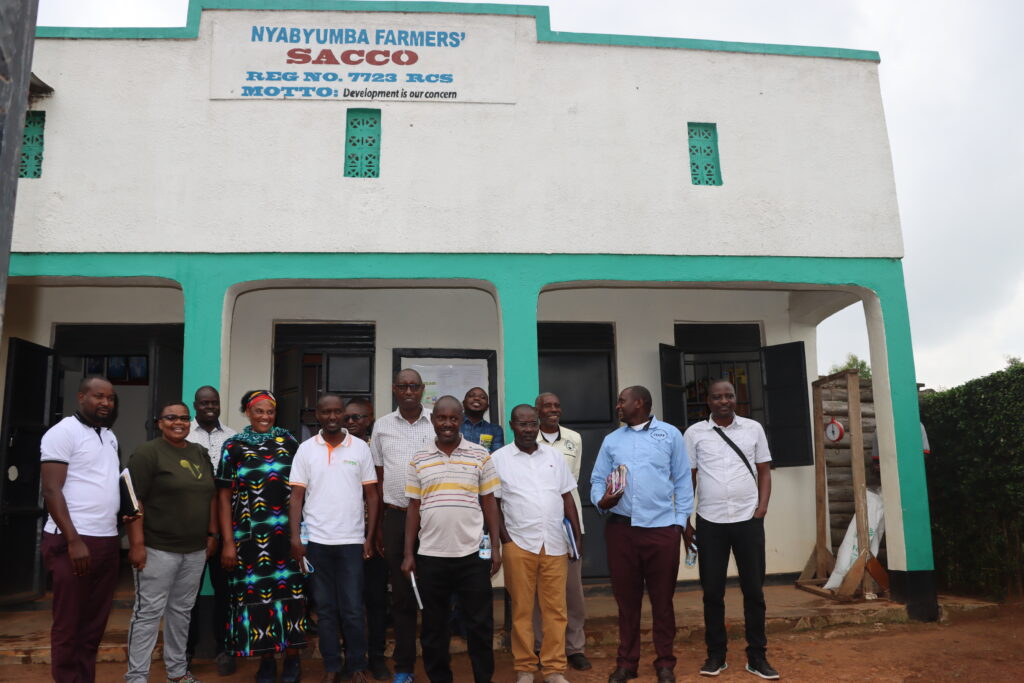
Seeds were scarce at the time, and it took Byarugaba almost 10 years to go through training on seed multiplication. Yet even after all this, he didn’t have enough funds to start a seed business. “Then my prayers were answered through IFDC,” Byarugaba continued, “IFDC constructed a 145 million-shilling (around U.S. $38,000) screen house under a cost-share arrangement for me. I contributed 30 million (around U.S. $7,900), and the rest came from IFDC. My life has never been the same.” Byarugaba explains how these benefits have led him to other accomplishments: “I am the first Ugandan to own a screen house, and my work has been appreciated. I recently participated in the Farmer Awards, and I was the first runner-up and won a cash prize of 30 million shillings.”
In contrast to its initial 60 members, the SACCO now has 2,958 members, including farmer groups, and has extended credit to farmers in the amount of 1.18 billion shillings (around U.S. $474,000) as of December 31, 2023. They offer services such as agricultural loans to farmers growing on more than 10 acres, school fee loans, youth agronomy capacity development loans, and emergency loans. Further, the cooperative did not initially have a business or marketing plan; therefore, BRIGHT hired a consultant to work on policies and plans and procure an electronic operations system.
“Most of the farmers could not afford to pay their children’s school fees on time. Some would end up selling their produce prematurely to get money. But with the cooperative financial support, all of this has changed.”
Ambrose Akankwasa, the General Manager of the cooperative
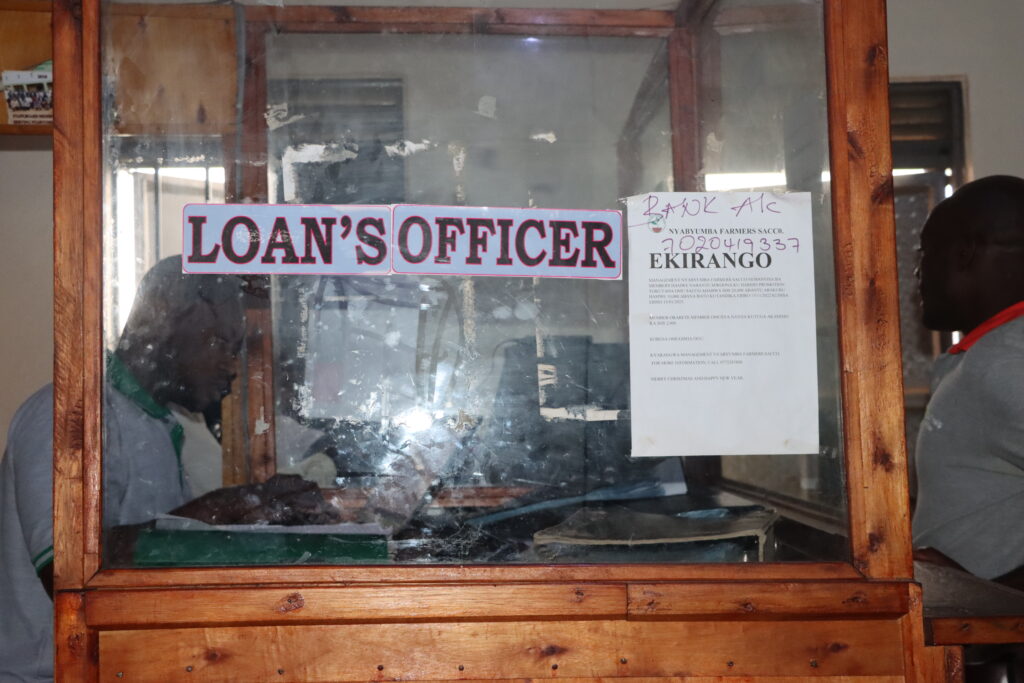
“We have a specific opportunity: in the cooperative, we have seed breeders; so the members of the cooperative get the best seeds, and we do collective marketing. We don’t sell as individual farmers anymore,” said Ambrose Akankwasa about seed production and sales. The business also supplies ware potatoes to Psalms Food Industries Ltd, and they have expanded by recruiting an extension worker for production. “We are doing demonstrations for farmers and financial literacy training, and we currently operate in more than 60 villages in the Kabale District but have branches across the region,” said Akankwasa, describing the impact of BRIGHT on the Nyabyumba SACCO’s growth.
Akankwasa also revealed that BRIGHT came as an eye-opener regarding the expansion that could be accomplished with governance health checks: “We have been trained and now we are progressing, and we are hopeful that in the next two years, we will be vibrant. We are now thinking of value addition, like on the ware potato. We want to grow and start making crisps and other products, packaging, and branding.”
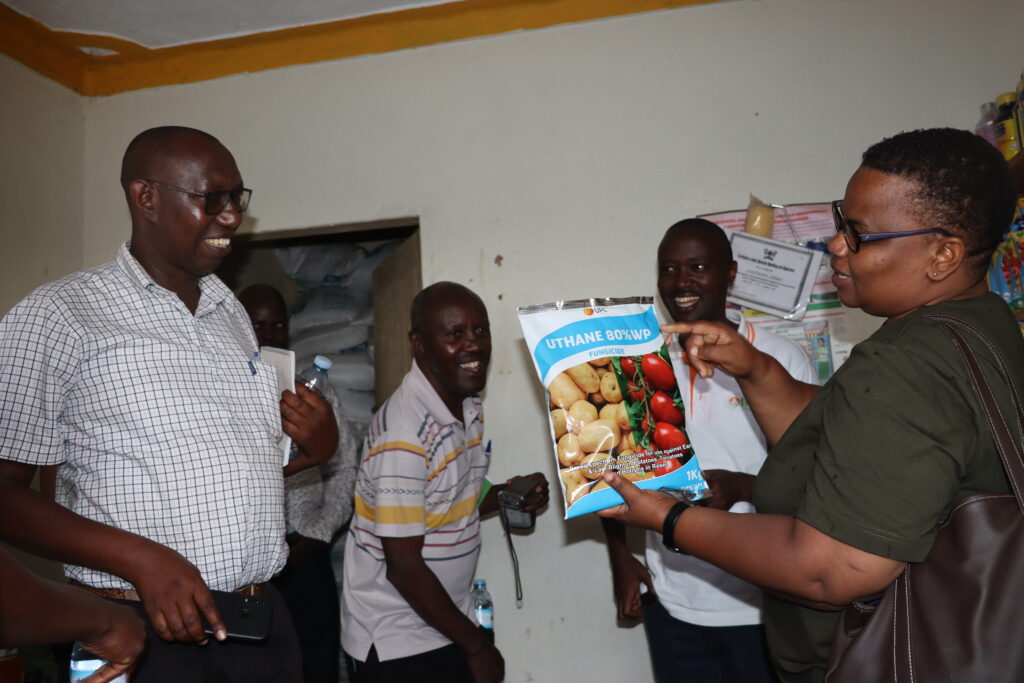
When asked how the cooperative has been able to survive and progress, Akankwasa replied, “The success of a cooperative is built on leadership and governance, policies, and structures. Accountability and transparency are key to creating trust and a good reputation. We use a member-centric approach in every plan of the cooperative.”
BRIGHT intends to continue empowering and building the resilience capacity of farm households and farming systems to increase household income, food, and nutritional security of all farmers, seeking to transform households from subsistence-oriented farms to more market-oriented and entrepreneurial farms.
The Building Resilience and Inclusive Growth for Highland Farming Systems for Rural Transformation (BRIGHT) project, funded by the Netherlands Ministry of Foreign Affairs through the Embassy of the Kingdom of the Netherlands, seeks to build the resilience capacity of farm households and farming systems in Uganda to increase income and food and nutrition security of all farmers and transform households from subsistence to more market-oriented in Kigezi, Mount Elgon, and Rwenzori regions. The project is being implemented by the International Fertilizer Development Center (IFDC) in cooperation with Agriterra, the Uganda Ministry of Agriculture, Animal Industry and Fisheries (MAAIF), the National Agricultural Research Organization (NARO), district local governments, and private sector partners.


